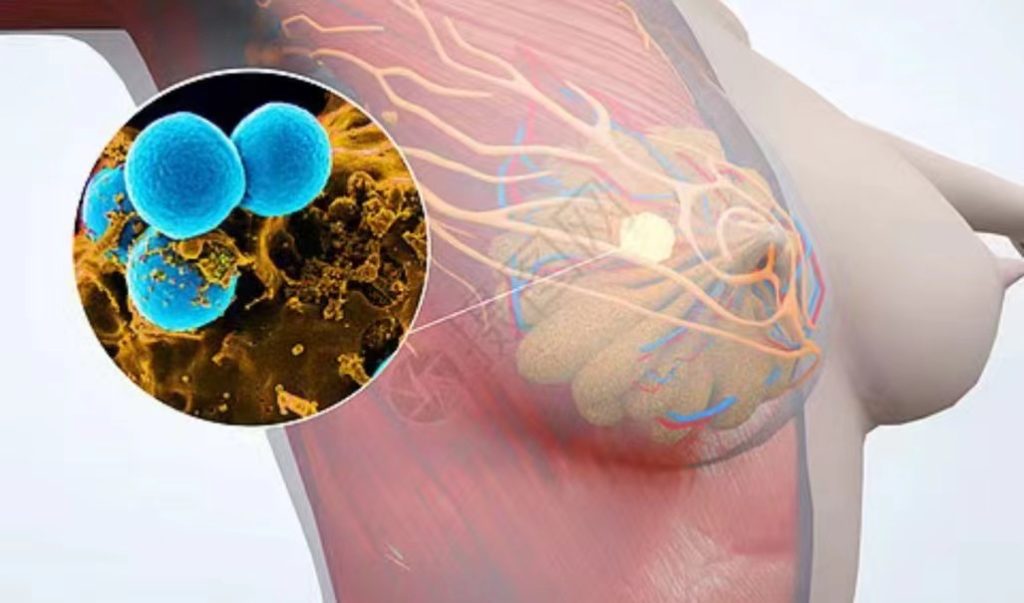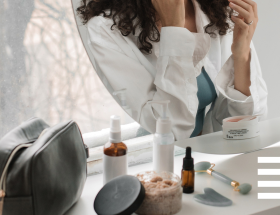Breast cancer, a formidable adversary that affects countless lives, calls for a proactive approach that empowers individuals with knowledge and strategies for prevention. While the battle against breast cancer is multifaceted, its foundation rests on education, awareness, and lifestyle choices. This essay explores key avenues through which women can take charge of their well-being and reduce their risk of breast cancer, highlighting the importance of early detection, healthy lifestyle habits, and the role of medical interventions.

Early Detection: The First Line of Defense
- Regular Self-Examinations: One of the most accessible tools in breast cancer prevention is self-examination. Women should perform monthly self-checks to become familiar with the normal texture and appearance of their breasts. Detecting any unusual changes such as lumps, dimpling, or nipple discharge early on increases the chances of successful treatment.
- Clinical Breast Examinations: Regular clinical breast examinations by healthcare professionals provide an additional layer of early detection. These exams, typically conducted annually, enable trained experts to identify subtle changes that might go unnoticed during self-examination.
- Mammography Screening: Mammograms, X-ray images of the breast tissue, play a vital role in detecting breast cancer in its earliest stages. Women aged 40 and above are generally recommended to undergo annual mammograms. Early detection through mammography significantly improves the likelihood of successful treatment and reduced mortality rates.

Healthy Lifestyle Choices: Fortifying Wellness
- Maintain a Balanced Diet: A diet rich in fruits, vegetables, whole grains, and lean proteins offers a protective shield against breast cancer. Incorporating foods with antioxidants, such as berries and leafy greens, can help neutralize harmful free radicals that contribute to cancer development.
- Physical Activity: Engaging in regular physical activity not only contributes to overall health but also aids in breast cancer prevention. Aim for at least 150 minutes of moderate exercise per week to help maintain a healthy weight and reduce hormone-related cancer risks.
- Limit Alcohol Consumption: Research suggests a direct correlation between alcohol consumption and breast cancer risk. Women are advised to limit alcohol intake to a moderate level, aiming for no more than one drink per day.
- Avoid Hormone Replacement Therapy (HRT): Long-term use of hormone replacement therapy to manage menopausal symptoms has been associated with an increased risk of breast cancer. Consult with a healthcare professional to explore alternative treatments that suit individual needs.
- Maintain a Healthy Weight: Obesity and excessive weight gain have been linked to an elevated risk of breast cancer, especially in postmenopausal women. Adopting a balanced diet and staying physically active can help achieve and maintain a healthy weight.

Medical Interventions: Empowering Protection
- Genetic Testing: Women with a family history of breast cancer may consider genetic testing to assess their risk. A positive genetic test result may lead to proactive measures, such as increased surveillance or preventive surgeries, to reduce the risk of cancer development.
- Hormone Therapy: Hormone receptor-positive breast cancers thrive on estrogen and progesterone. Hormone-blocking therapies, such as selective estrogen receptor modulators (SERMs) or aromatase inhibitors, can be prescribed for women at high risk of developing such cancers.
- Vaccination: The human papillomavirus (HPV) vaccine not only protects against cervical cancer but also reduces the risk of certain breast cancers. Consult a healthcare provider to determine if the vaccine is appropriate, especially for young women.

Conclusion: Forging a Path of Empowerment
Breast cancer prevention is a journey that demands a proactive and holistic approach. By equipping women with the tools of early detection, encouraging healthy lifestyle habits, and exploring medical interventions when necessary, we can collectively forge a path of empowerment and wellness.
Education and awareness serve as pillars of strength in this battle. As women arm themselves with knowledge and cultivate healthy habits, they take decisive steps toward reducing their risk of breast cancer and embracing a life of vitality and well-being. In the face of this formidable adversary, the path to prevention is paved with informed choices, resilience, and the unwavering spirit of empowerment.







